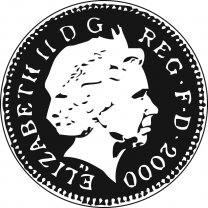The £££s in your pocket
On 11 January 1979 I was preaching at Cortonwood in the old Barnsley West Circuit. The church is now closed. After the service I was in the vestry with the Steward waiting for my lift home with Mick Johnson. The Steward was emptying and counting the envelopes.
A bundle of envelopes, about 12, was held together with an elastic band. “Oh dear”, said the Steward, “I know what is in these”. Apparently a member of the church attended about once every 3 months. He saved up his envelopes to put in the collection next time he was at church. This is usually admirable, just what the envelope scheme was designed for.
Unfortunately this member had promised to give 6d a week (old money, equal to two and a half pence now) in 1952 when the scheme started and had rounded this down to 2p after decimalisation. Each of the 24 envelopes contained a 2p piece, 24 p in all! It makes you wonder what the member thought he had promised those 27 years before.

Churches and other charities reaped a benefit after decimalisation because of the introduction of the £1 coin to replace the previous note. People were more ready to give a coin than a note and the £1 coin became the preferred gift on our collection plates. This is still the case.
What those givers have totally ignored is inflation. If you promised, either on paper or in your heart, to give £1 a week to church (or indeed any other charity) in the early 1970s, what would you have to give now to support the church at the same level?
The answer is £12.97! Yes, almost £13 is needed to do the same as your £1 would do all those years ago. To put it the other way, when you put a £1 on the collection plate it is as if you were to put 8p on in 1970. You will see that our weekly collections do not cover costs, they have to be boosted by fairs etc, which are really to cover future repairs. The reason that we have reached this position is because we, and I include myself, have not maintained our level of giving. We know that our income and our household spending has been affected by inflation, we should realise that our giving should move the same way.
Of course, we can say that our circumstances have changed, we may be on a pension rather than working. I am not in any way suggesting a figure that should be given by those who attend Wisewood, but I do think that it is important to be reminded that the £1 we put on the plate in 2012 is in no way the same value as the one we gave in 1970.
David Battye